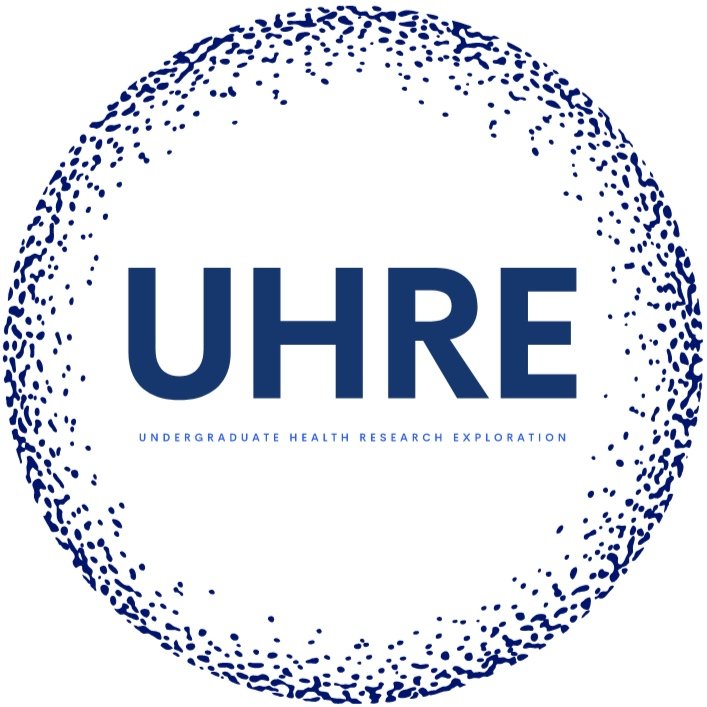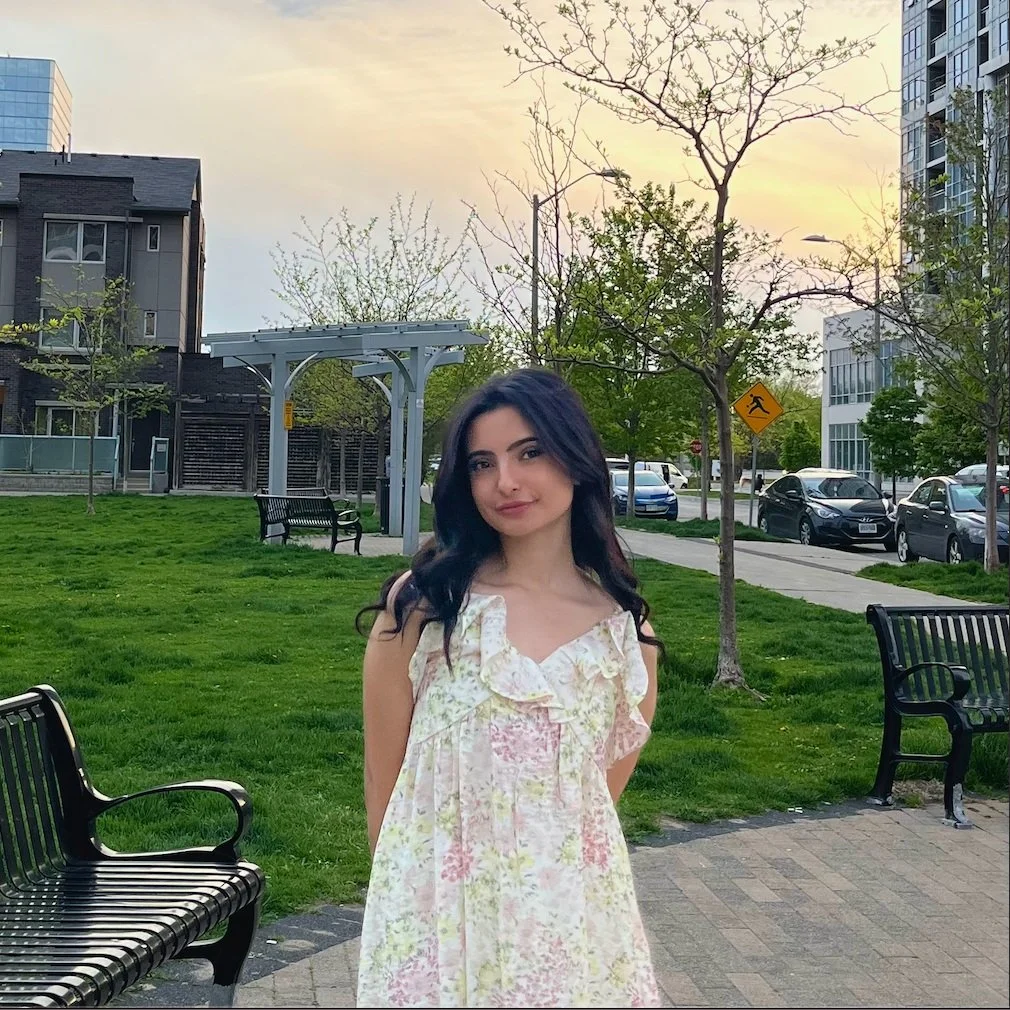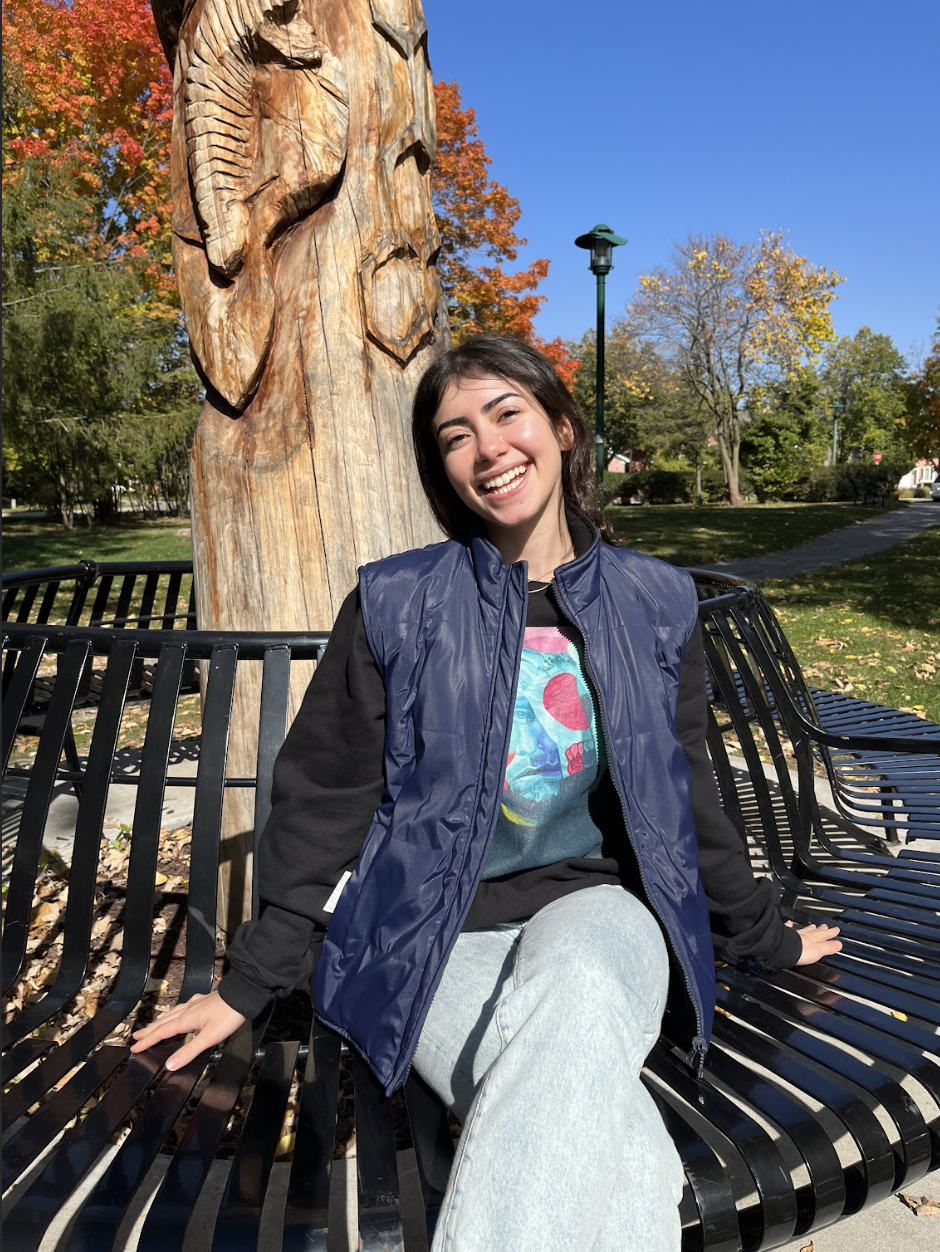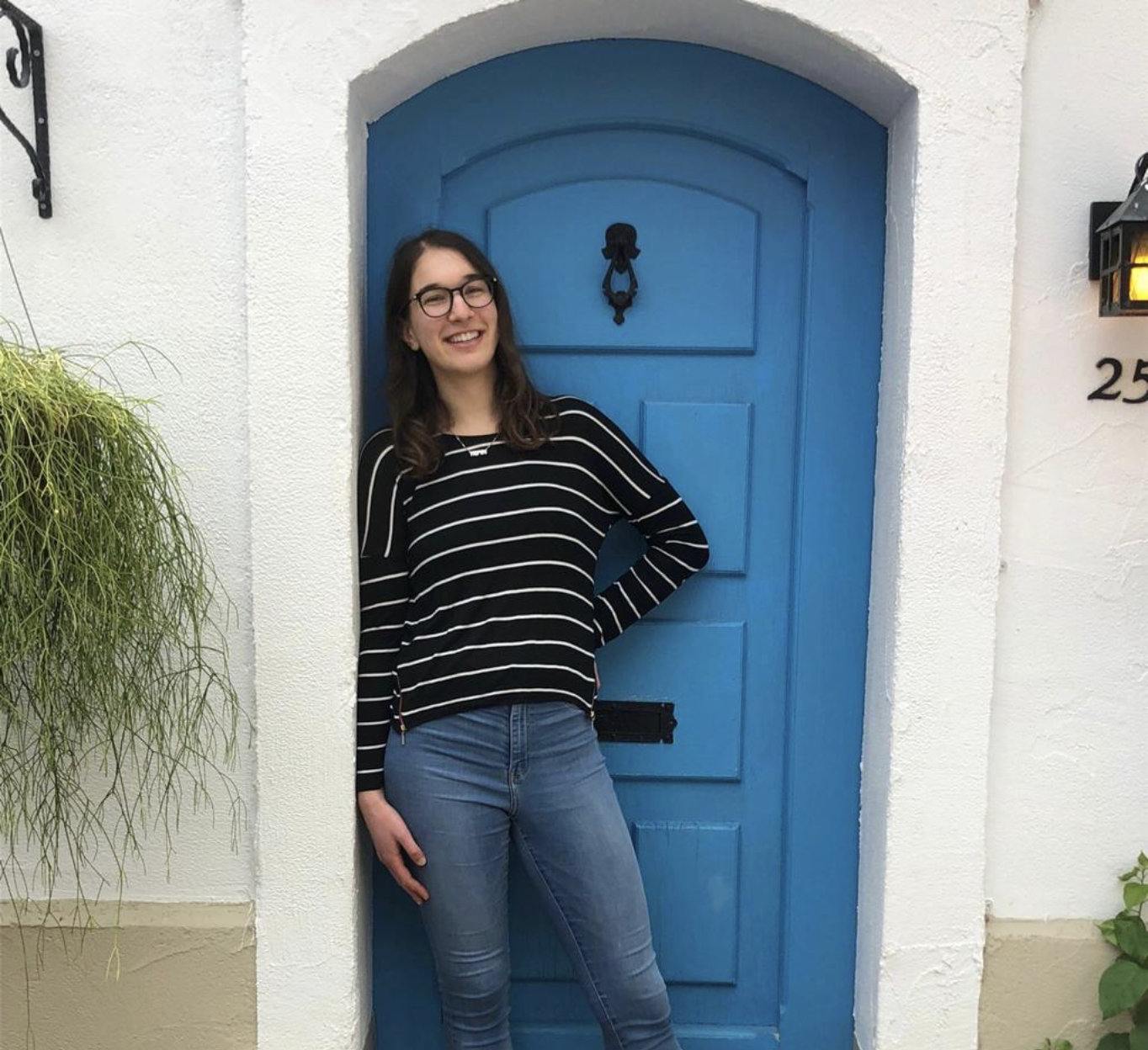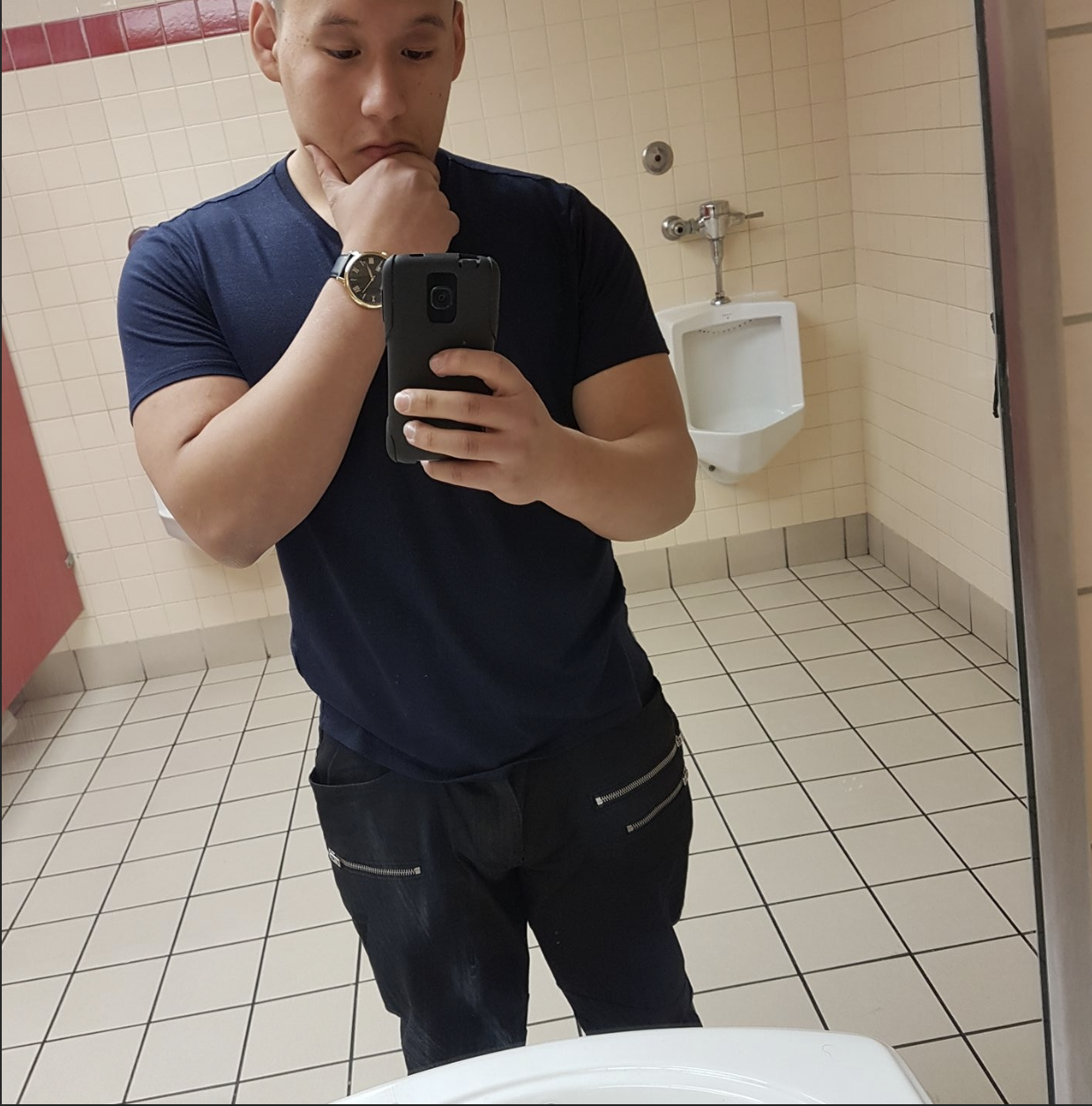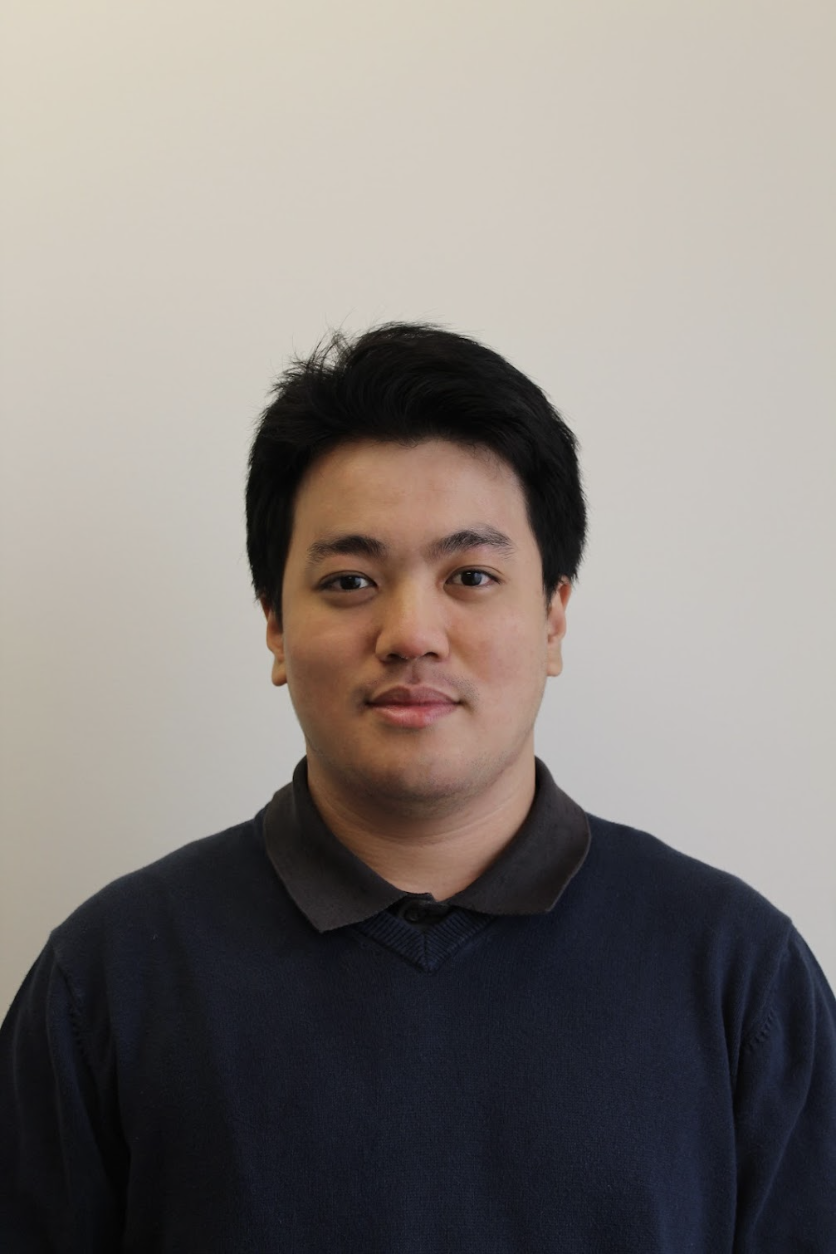UHRE
Research Mentorship Program (URMP)
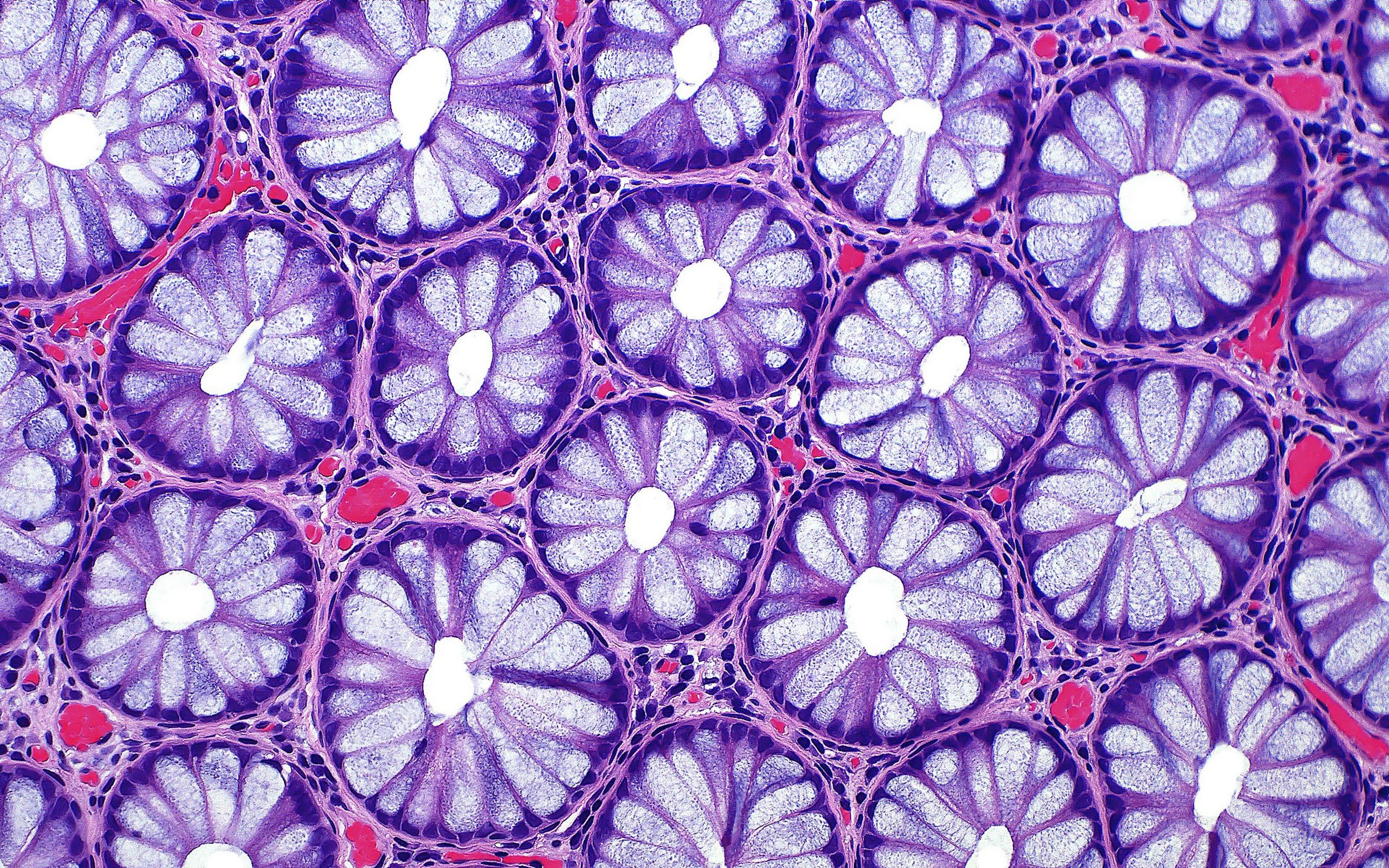
The UHRE Research Mentorship program (URMP)
URMP is a collaborative initiative that matches students interested in research involvement with experienced undergraduate researchers to provide support throughout their journey in finding, applying, and successfully completing a research position. Prospective students can Register for URMP, and receive support in applying to research volunteering, credit, and employment roles both on- and off-campus. Matches are on a first-come, first-serve basis.
Application Process
Review the list of current Research Mentors available for matching (below).
Submit an application with your information and requested mentors.
Match with your Research Mentor and have an Exploratory meeting to discuss goals and preferences for your ongoing mentorship for the duration of the year.
Receive ongoing support and access to resources, as well as priority news for upcoming opportunities.
Rida Ikram
2nd Year Psychology
-
My research interests revolve around neuroplasticity, particularly how the brain adapts in the context of mental disorders and injuries, specifically in motor disorders. I'm fascinated by the brain's capacity for adaptation and aim to explore its implications for improved treatments and outcomes.
While my current research experiences are limited, I have actively participated in various associations and organizations at York University that align closely with my research interests. I am the executive researcher for 'Breaking Stigmas at YorkU,' where we employ biochemical and neurological research to challenge misconceptions surrounding various mental illnesses. These affiliations have provided valuable networking opportunities and an enriched understanding of the field, further fueling my aspirations to delve deeper into neuropsychology.
-
I've always been driven by a boundless curiosity and a desire to apply what I learn in my courses to real-world challenges. The idea of one day contributing to research is both inspiring and humbling. It represents a journey of exploration and discovery that excites me as I aspire to make a meaningful impact in neuropsychological research.
-
Outside of school, I'm passionate about houseplants. My room resembles a mini rainforest, and caring for these plants is both a hobby and a peaceful escape from my academic routine.
Newsha Nozariasbmarz
2nd Year Kinesiology & Health Sciences
-
Diabetes research
-
Because research is what bridges the gap between knowledge and practice
-
I enjoy biking, playing soccer, and watching the sunset
Amirpooya Sadeghi
4th Year Health Management, Policy, & Informatics
-
Neuroscience, health care improvement, biostatistics and data visualisation
I conducted a systematic review on patient involvement in medical education for my dissertation. I also worked under supervision of professor Hanna Jankowski on Covid-19 risk communication and data visualization and how we can improve the current approach.
-
Research is the cornerstone of scientific understanding and what we use to assess our understanding of the world and improve upon it. Hence, it is important to for us to get exposure as we learn about it through our courses.
-
I like to be active, and I enjoy working out, running, kickboxing and paddling. I also like music and learning electric guitar.
Hadassah Nauenberg
4th Year Kinesiology & Health Sciences
-
My areas of interest are in exercise, rehabilitation, and nutrition, and how it impacts different diseases and inflammatory responses.
I analysed previous data on the changes in attitude towards exercise after a health intervention in adolescent females' with overweight/obesity. Next semester, I hope to look at the relationship between COPD and dairy products. I an looking to see if there is an effect of dairy consumption on individuals with COPD.
-
Applying the different concepts that I learned in lecture to the areas being researched furthers my understanding of the importance of health in everyday life.
I hope to go to graduate school for physical therapy and work within the healthcare system. Being surrounded by a community of likeminded professors and graduate students during my undergraduate degree has allowed me to realize the extent of topics that can be explored. As a result, I hope to do research on rehabilitation to work as a healthcare professional while helping more people by improving healthcare for the future.
-
I love playing basketball and finding new parks for some nice runs/hikes! I love doing anything outdoors!
Emilio Toala
4th Year Psychology
-
I am interested in a few areas of research: the relationship between culture, identity, and psychological functioning; understanding determinants that influence academic achievement; sexual health & well-being.
Currently, I'm working alongside Dr. Sarah Flicker with the Faculty of Enivronmental & Urban Change at York on some very exciting community projects. The first project I'm working on is in collaboration with Planned Parenthood, where we are assessing teacher perceptions of a newly developed and modernized health curriculum with the aim of disseminating the new curriculum to grade 9 youth across Canada. The second project I'm working on is in collaboration with the Canadian Foundation for AIDS Research, where we are developing a new website (sexfluent.ca - Check it out!) to disseminate important sexual, mental, and physical health information to youth in a diverse Canadian context, with a specific focus on equity, accessibility, inclusivity, and diverse representation.
Previously, I've had the fortunate opportunity of being able to work with SickKids Hospital on a project called Spit for Science, where I assisted in population-level research to assess the genetic & environmental determinants of children's physical & mental health. I've also worked in the psychology department at York in various capacities, from having worked as a senior research assistant on studies examining cultural influences on prosocial behaviors, and as a laboratory manager where I had the opportunity to liaise between my supervisor, graduate students, & undergraduate research assistants, coordinate lab activities, and maintain lab manuals.
-
Coming from an underprivileged background, I have an intimate understanding that there is power in one's knowledge that can be applied to research. Knowledge, for me, doesn't only come from the classroom or practical research experiences, but also from lived experiences, and such experiences can be drawn upon to pose new and insightful questions that have not yet been asked. Through significant introspection of my own lived experiences, I've come to realize that I can create positive change through the kinds of research questions that I ask, the people that I consult throughout the research process, and the real-world interventions that I can help create through the insights that are gained from research findings.
-
Outside of school, I love to work out regularly, I'm an avid cook, and I spend my spare time playing games like Project Zomboid!
Norman Dang
6th Year Kinesiology & Athletic Therapy
-
I am a volunteer in the Dynamic Balance Lab under Prof. George Mochizuki.
My research experience has consisted of assisting with data collection, performing data analysis and conducting literature reviews.
-
I am interested in Concussion research because of the brain's importance in our daily function and who we are as individuals. Injuries to the brain such as a concussion can affect our physical and mental functioning. I believe studying why these effects occur can lead to better methods to prevent and reverse the effects of brain damage.
-
Dragon Boat Racing, Video Games, Eating
Our Mentorship Services
Finding your Research Interest
Discovering your research interest is an important part of the process. Students who know what field they are interested in are better prepared to seek and successfully apply to their top research programs. Each field is unique in its methodology; ‘wet’ labs involve traditional beachside experiments, while ‘dry’ labs are more clinical and epidemiological—our Research Mentors can help make sense of it all, and find what suits you!
Cover Letter Editing
Many of the formal research opportunities require students to submit a Cover Letter as part of the application for their research position. These letters outline your motivation, fit, and value to the prospective supervisor, and is used as a way to find the students they wish to interview. Writing a good cover letter can be foundational to securing a research role.
Interview Tips & Practice Sessions
You’ve made it through the gates with one foot in the door; the final stage of the process is the interview. Interviews for research position can be quite different from your typical job interview. Supervisors can be highly specific in what they’re looking for, and questions may likewise be different from the traditional interview. URMP provides in-house resources that can help you practice from our set of pre-made interview questions based of our own Research Mentor’s past interviews, and provide feedback during one-on-one practice session
Searching for Opportunities
There exist many formal and informal channels through which students can get involved in research. Access to information is often through word-of-mouth, making it difficult for new students to find and navigate the different sources of opportunities that are available to them. Our Mentors are well-connected and can act as a gateway to the different opportunities that exist!
CV/Resume Templates & Critique
Our Research Mentors have insights on what potential research supervisors are looking for when reviewing your CV or Resume. Often, this might be the first place a supervisor looks to, before all other aspects of your application. URMP provides access to our in-house CV/Resume templates, and can help you overcome this step of the process!
Ongoing Support in Your Role
The best part about research is the many exciting challenges that you will have the privilege of learning from. Our support does not once you’ve landed a position. URMP Mentees are welcome to remain in touch with their Research Mentors for any ongoing advice or questions they may have. As Research students ourselves, we know how valuable it is to have a support network outside of our work!
Email writing & Application Support
Once you’ve found an opportunity that resonates with you, students must reach out and show they are available and willing to take on the role to their prospective supervisors. Often, students have to email dozens of individuals to find a supervisor willing to take them in. Maximizing your odds requires a well-tailored, professional application that makes you stand out as a high-quality applicant!
Networking
Our mission is to help as many students as possible overcome barriers to entry in research and academia. One disparity that exists among students is access to a robust and productive network than can provide information about opportunities and areas of interest. Our mentees can have access to such networks through our community of mentors to overcome this challenge!
